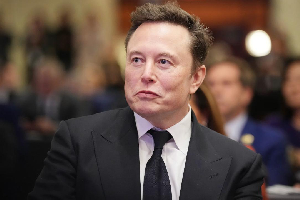May I respond to the above-captioned article which appeared on your website on November 11, 2011. I find the comments of the Vice President, John Dramani Mahama, on the correlation between low quality education and unemployment exonerating. It is interesting he even goes further to highlight the problem of mismatch between programs pursued at the tertiary institutions and the demands of the market.
I am sure many writers including yours sincerely must have addressed some of these issues in his series touching on education and other matters. I am, however, enthralled by the statement in the seventh paragraph of the news to the effect that “but we also need to look at what the market wants and reform the school system, so it producing what the market wants, so that people can come and find work.”
I am particularly enthralled by this statement because in the last few weeks there have been acknowledgement from the highest echelons of academia, especially statements by the Vice-Chancellor of the University of Ghana, Professor Ernest Aryeetey, admitting the disaster in the Ghanaian educational sector leading to the training of graduates who cannot fit into the world of work and would only heighten the unemployment situation around the country.
It is gratifying to note that the Vice President of the land has also alluded to the fact now. These are two strides in the right direction. I am very certain that leadership is waking up too late to the fact that the construction of classroom blocks alone is not a magic wand to redirect educational policy towards the desired end. Obviously, construction of classroom blocks is the soft end of the job, especially when it is open to all forms of corruptions and manipulations. Ghana needs intellectual and political leadership to redirect her educational policy towards what is needed to make her people productive in the 21st century, and that is not in the power of private individuals, when the state has a vested responsibility in shaping, directing, and (even misdirecting) national policies including that of education.
From a close observation of statements from both the politicians and those in educational leadership, it is obvious there is concurrence of thought. What is, however, lacking is that it is difficult to point out what plans both of these institutions and their leaders have in place to initiate the needed policy reforms in the educational sector. Even following news items on “computer selection” of students for the senior high school (SHS) alone informs any critical mind that we need to do much more than we are currently doing, if education is supposed to lead us in the 21st century.
From the quote of the Vice-President, one may be tempted to ask how long it takes and who has to take that step to observe the “market” to decipher what the market wants towards initiating that needed reform? If for three years, we couldn’t decipher this and, as usual, we continue to make statements that do not even point to A,B,C, and D, as steps towards reform, then I am sure readers will agree with me we are in for a long stretch to decipher the market and to think solutions.
I feel exonerated!
Prosper Yao Tsikata Email: pytsikata@yahoo.com
Opinions of Sunday, 13 November 2011
Columnist: Tsikata, Prosper Yao
Re: Blame school systems for rising unemployment - Veep
Opinions













